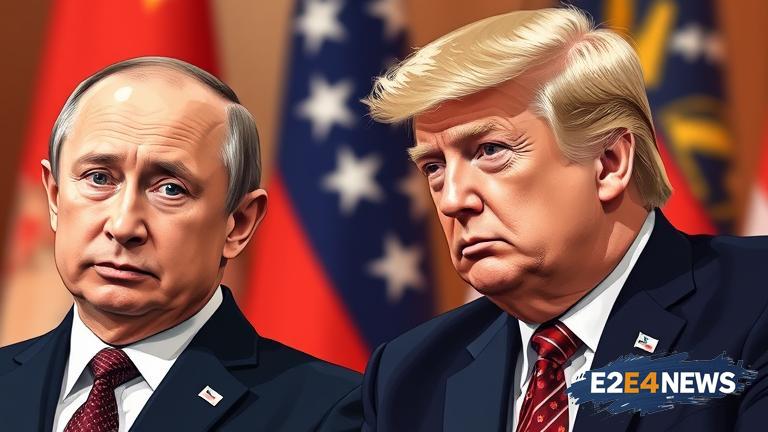In a recent statement, Russian President Vladimir Putin has cast doubt on the potency of US President Donald Trump, sparking concerns about the state of global diplomacy. This development comes at a time when international relations are already strained, with multiple nations navigating complex geopolitical landscapes. Putin’s comments have been interpreted as a reflection of his own perspective on Trump’s leadership style and its implications for global stability. The Russian leader has long been known for his calculated and often provocative approach to international relations, frequently challenging Western norms and alliances. Trump, on the other hand, has been characterized by his unconventional and sometimes unpredictable approach to diplomacy, which has led to both praise and criticism from various quarters. The relationship between Putin and Trump has been closely watched, given the significant geopolitical implications of their interactions. Despite initial hopes for improved relations between the US and Russia under Trump’s presidency, tensions have persisted, particularly over issues like Ukraine, Syria, and election interference. Putin’s doubts about Trump’s potency may signal a deeper skepticism within the Russian government about the US’s commitment to diplomatic engagement and its ability to follow through on international agreements. This skepticism is not unique to Russia, as other nations have also expressed concerns about the reliability of the US under Trump’s leadership. The global community is watching these developments closely, aware that the dynamics between major world powers can have far-reaching consequences for peace, security, and economic stability. In the context of rising global tensions, including trade wars, military build-ups, and environmental challenges, the need for effective and predictable leadership is more pressing than ever. The potency of a nation’s leader is not just about personal charisma or political will but also about the ability to navigate complex international systems, build alliances, and make difficult decisions that balance national interests with global responsibilities. Trump’s presidency has been marked by significant controversy, both domestically and internationally, which has led to questions about his effectiveness in office. The US political landscape is highly polarized, with deep divisions within the country that can impact its international standing and influence. Meanwhile, Russia continues to pursue its own geopolitical agenda, often through means that are seen as assertive or even aggressive by Western standards. The interplay between these two major powers, along with other global actors, will continue to shape the future of international relations, with implications for everything from trade and security to human rights and environmental protection. As the world navigates these challenging times, the leadership qualities and diplomatic strategies of major powers will be under intense scrutiny. The ability of leaders like Putin and Trump to work towards common goals, despite their differences, will be crucial in addressing the myriad challenges facing the global community. However, given the current trajectory of their relationship and the broader geopolitical context, there are significant doubts about the prospects for meaningful cooperation. The coming years will be critical in determining the course of global affairs, with the actions and decisions of leaders like Putin and Trump playing a significant role in shaping the future. Ultimately, the potency of a leader is measured not just by their ability to project power but by their capacity to inspire confidence, foster cooperation, and contribute to the greater good. In the complex and often contentious world of international politics, these qualities are more essential than ever. The ongoing saga of US-Russia relations under the leadership of Trump and Putin will continue to be a major story, with significant implications for global stability and security. As nations and international organizations seek to address the pressing challenges of our time, the need for effective, visionary leadership has never been more apparent. The world watches with bated breath as these leaders navigate the intricate landscape of global politics, hoping for outcomes that promote peace, understanding, and cooperation.





